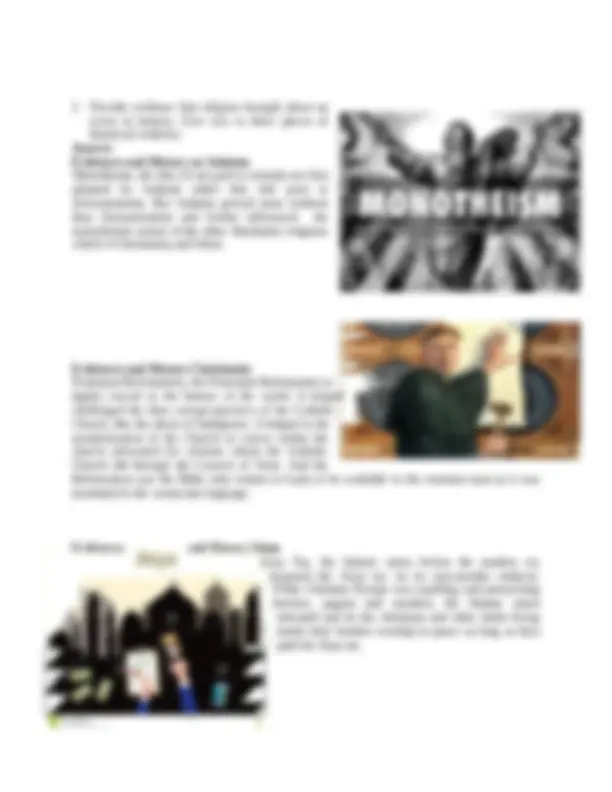Performance Task for First Grading Period
Theme: Religions Comparative Analysis
1. Identify the positive and the negative effects of religions (Judaism, Christianity & Islam). Give at
least three positive and negative effects of it.
Answer:
Three Positive Effects of Judaism
- Helped strengthened the idea of Monotheism in later religions like Christianity and Islam.
- Helped strengthened human rights and the idea that slaves deserve human rights.
- A rest day on the 7 days of the week helped the condition of the working class.
Three Positive Effects of Christianity
- Protestant Reformation helped spread ideas of liberty and freedom.
- Challenged the militaristic and oppressive nature of the Roman Empire
- Provided education and literacy to the poor provided they joined the clergy during the middle
ages.
Three Positive Effects of Islam
- Helped advanced the cause of science and learning during the Islamic Golden Age.
- Islamic empires are known for tolerating and letting their subjects who do not adhere to Islam
to worship in peace as long as they pay the special tax (Jizya).
- Translated the ancient greek texts ranging from philosophy from plato to greek science to
Arabic that in turn Christian Europe translated to Latin that helped facilitated the
Renaissance.
Three Negative Effects of Judaism
- The Jewish people known for dominating the financial economies of Europe for many
centuries because the Catholic Church banned charging interest on loans because it
considered Usury as a sin.
- The Torah is considered too old and needs some revision to the modern world, like its harsh
stance on homosexuality.
- Judaism is known to be highly patriarchal.
Three Negative Effects of Christianity
- The Catholic Church encouraged trials on heresy and witchcraft in Europe during the middle
ages.
- The Catholic Church initiated the military campaigns of the Crusades against the Islamic
empires in the middle east and the pagans of northern europe.
- The Catholic Church as a consequence of the Inquisition harmed the progress of science and
knowledge it deemed heretical to theological beliefs held by the church as seen in Galileo’s
case.












